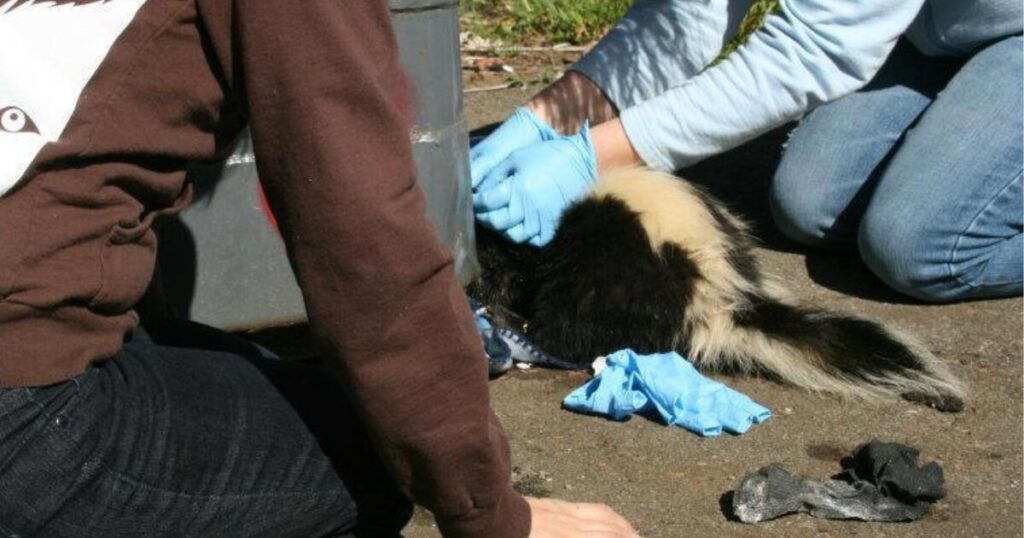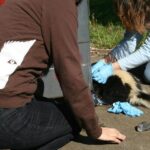
The Fur-Bearers' file photo, circa 2012.
Dumpsters with drainage holes are found across the country, but leaving them open or uncovered can put skunks in danger.
Skunks, like many animals, follow their noses to potential food. The low-sitting drainage holes on dumpsters can provide a potential access point to all manner of stinky anthropogenic leftovers; but due to their triangular-shaped heads, skunks may be able to get their heads in – and not back out.
Wildlife rehabilitators, among others, have spent countless hours slowly, cautiously, and gingerly helping skunks out of these situations. But the damage may already be done: lacerations or abrasions around the neck, bulging eyes, dehydration, and exposure make recovery more difficult. In some cases, the dumpster may need to be cut to make it possible for removal of a skunk.
Above: Volunteers successfully remove a striped skunk from a dumpster drainage hole in Vancouver, circa 2012.
Fortunately, there’s an easy solution – and in some areas, it may be an enforceable law.
Covering the drainage hole with a fitted cap, or installing a mesh filter will prevent such injuries, and can also help reduce seepage and pollution from the dumpster. In some municipalities, it is illegal to not have the drainage hole covered or plugged, adding incentive for business owners to implement this simple solution.
Rodent access to dumpsters is also mitigated with these solutions. If you see a dumpster with an open drainage hole, you can likely find a phone number on the container to call and request it be covered or report that the drainage hole is open.
Have you had success preventing wildlife from accessing dumpsters with innovative solutions or tools? Let us know at info@TheFurBearers.com or commenting on our Facebook, Instagram, Twitter, or LinkedIn pages.




